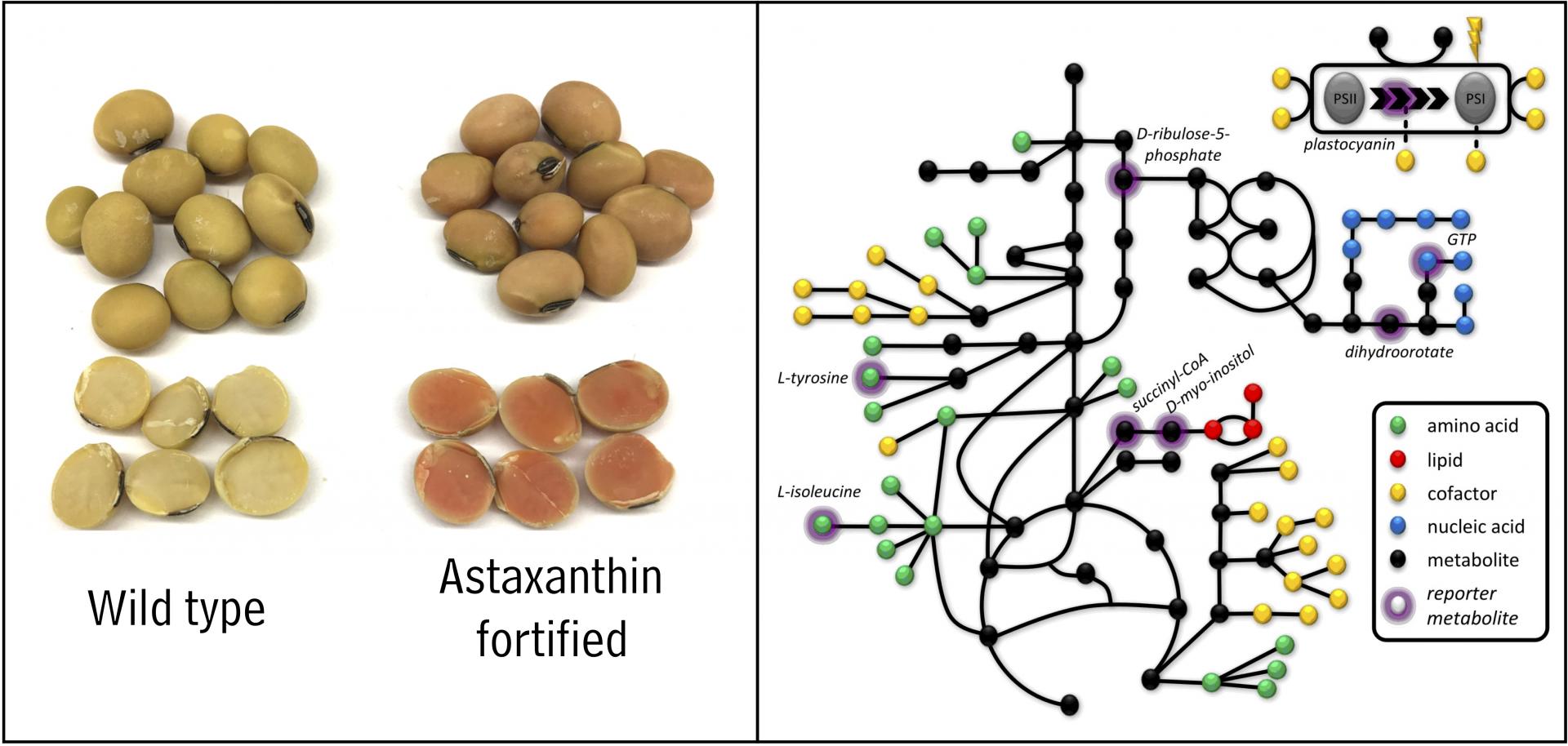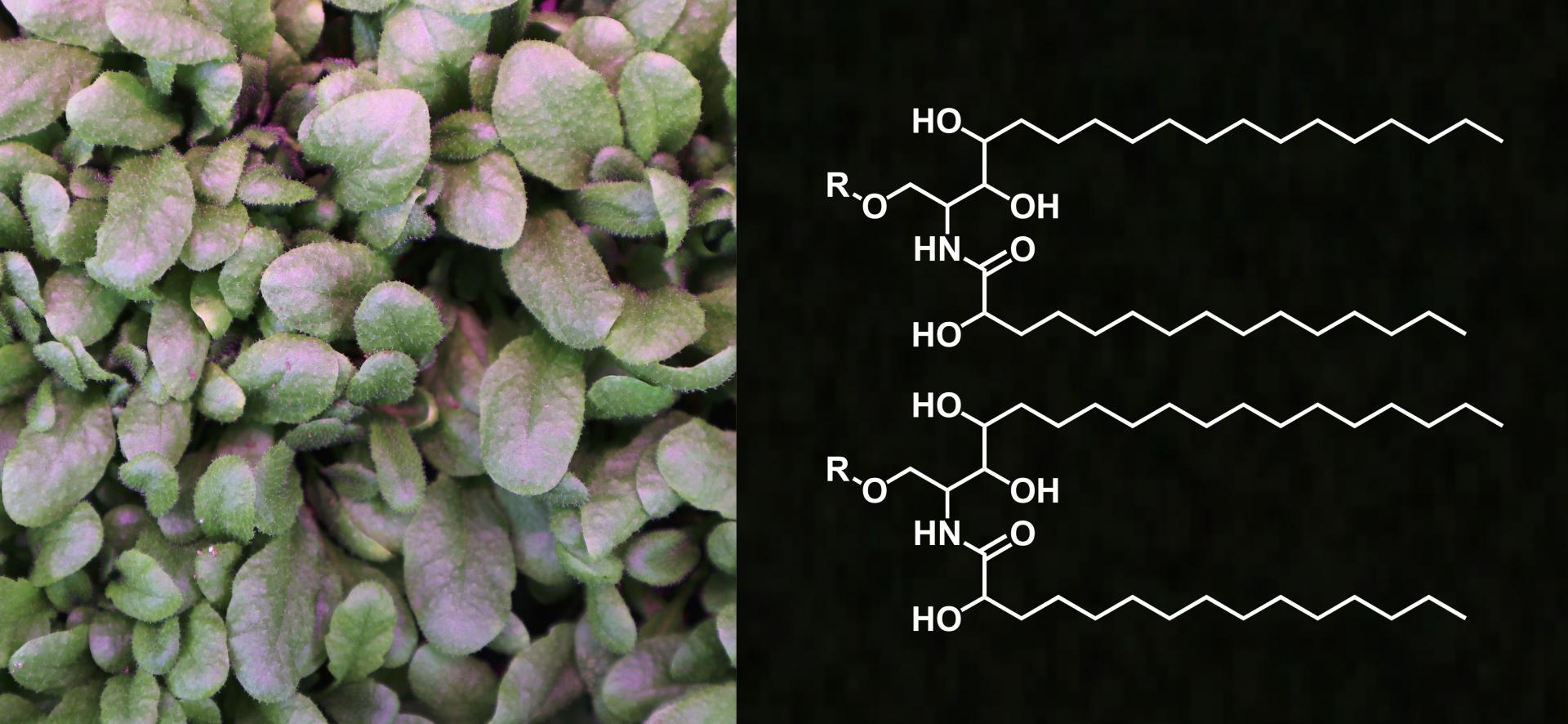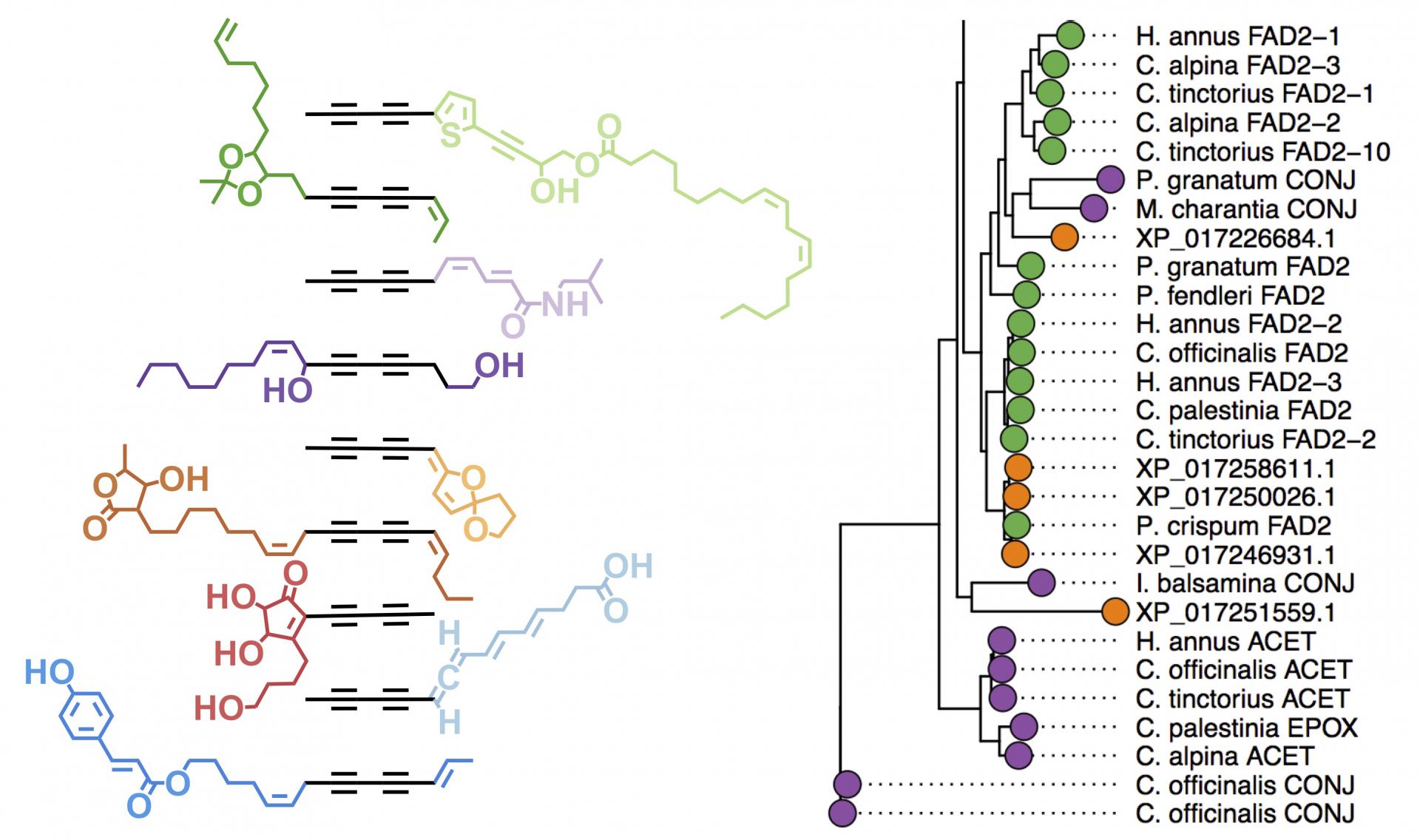The Cahoon lab's research focuses on several aspects of plant lipid metabolism:

Metabolic Engineering and Synthetic Biology
Conventional plant breeding and biotechnology approaches typically target only one or a small number of traits for crop improvement. In contrast, the emerging discipline of synthetic biology focuses on introduce many, diverse traits into a crop genome during a single genetic transformation experiment. We are applying synthetic biology to accelerate the improvement of the nutritional and industrial value of seed oils.
Sphingolipid Metabolism and Homeostasis
Sphingolipids are structural components of membranes and bioactive molecules involved in cellular processes and environmental responses. We are currently studying the biosynthetic pathway and function of sphingolipids in Arabidopsis thaliana. Our group has characterized enzymes involved in the synthesis and modification of sphingolipids and described the roles of these essential lipids in cell differentiation, development, and stress response in plants. Currently, we are investigating the mechanisms of homeostatic regulation of sphingolipid biosynthesis.


Biosynthesis, Diversity, and Evolution of Plant Lipid Natural Products
Acyl glycerols are found in virtually all plant species, but plant lipid diversity extends far beyond these ubiquitous compounds. There are many plant lipid natural products with potent bioactivities that have the potential to improve human nutrition, crop resiliance, and crop value. We are working to discover new plant lipid structures from across plant diversity, uncover and engineer the biosynthetic pathways that generate these compounds, and understand the roles of these compounds in the context of plant evolution.